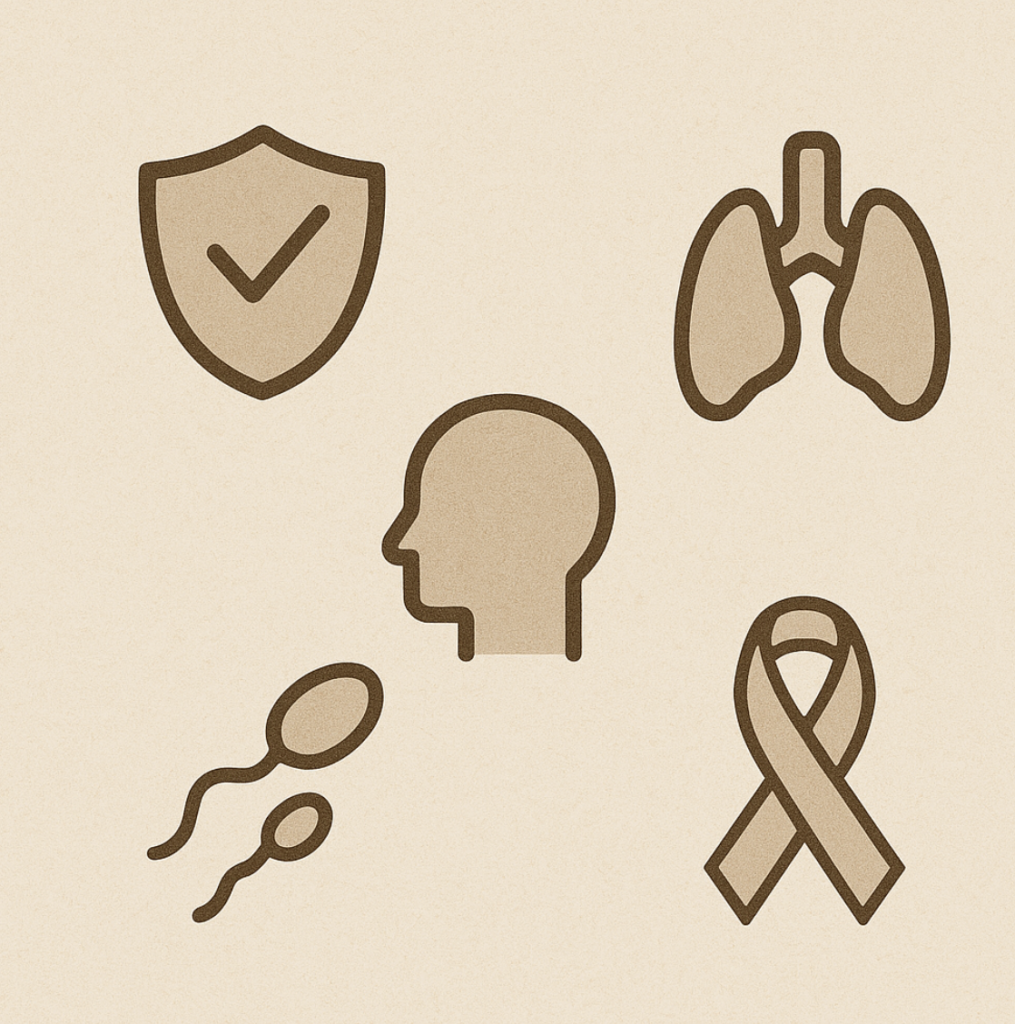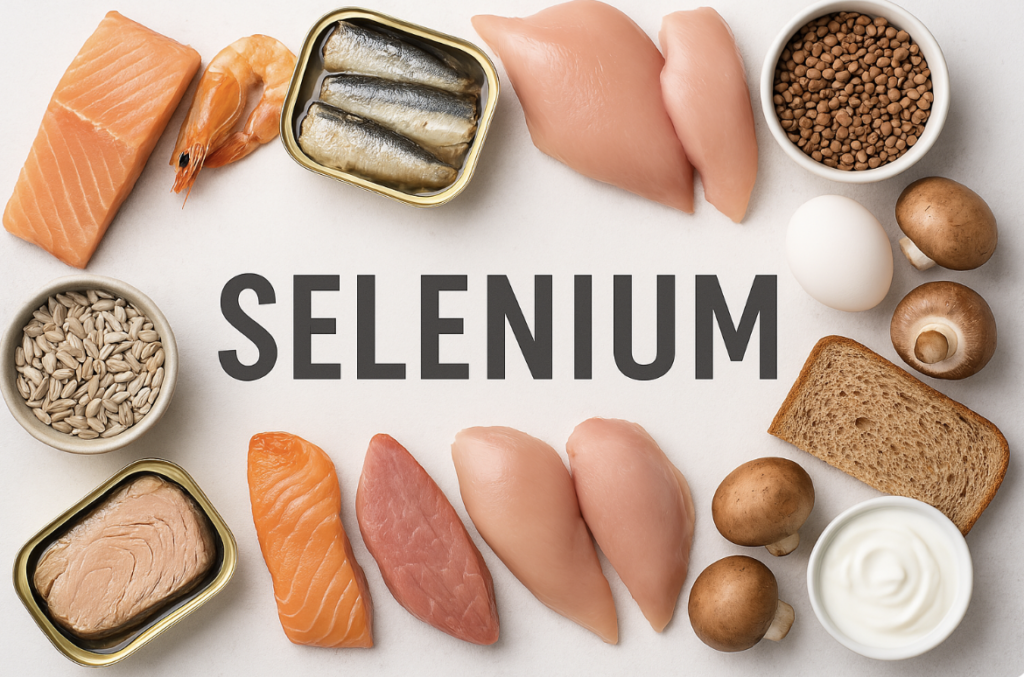Selenium is a powerful trace mineral that plays a vital role in immunity, thyroid health, antioxidant defense, and even fertility. While your body only needs small amounts, selenium deficiency can still occur—and it may increase your risk of chronic disease, fatigue, or hormonal imbalances. In this post, you’ll learn what selenium does in the body, signs of deficiency, top food sources, and when supplementation might be needed.
What Is Selenium and What Does It Do?
Selenium is a trace mineral that functions as a cofactor for antioxidant enzymes, helping to neutralize oxidative stress and inflammation. It also supports thyroid hormone production and DNA synthesis.
✔ Key Functions of Selenium:
- Protects cells from oxidative damage (antioxidant role)
- Regulates thyroid hormone metabolism
- Supports immune system activity
- Aids in DNA synthesis and reproductive health
- May play a role in preventing certain cancers
💡 Did You Know? Selenium is incorporated into proteins to make selenoproteins—essential for cellular defense and metabolism.
Health Benefits of Selenium

✔ 1. Boosts Antioxidant Defense
Selenium helps create glutathione peroxidase, one of the body’s most powerful antioxidant enzymes, protecting against free radical damage.
✔ 2. Supports Thyroid Function
The thyroid contains more selenium per gram than any other tissue. Selenium helps convert thyroid hormone T4 into its active form, T3.
✔ 3. Enhances Immune Function
Selenium plays a role in antibody production and helps the body fight off viruses and bacteria.
✔ 4. May Support Fertility and Reproductive Health
Selenium contributes to sperm motility in men and supports healthy egg quality in women.
✔ 5. May Help Reduce Cancer Risk
Some studies suggest selenium has a protective effect against prostate, lung, and colorectal cancers, especially in people with low baseline selenium levels.
Signs of Selenium Deficiency

⚠️ Common Symptoms:
- Fatigue or brain fog
- Hair thinning or brittle nails
- Weakened immunity (frequent illness)
- Infertility or hormonal imbalances
- Muscle weakness or joint pain
- Hypothyroid symptoms (weight gain, cold sensitivity)
💡 At-Risk Groups:
- People with digestive disorders (e.g., Crohn’s, celiac)
- Dialysis patients
- Vegans/vegetarians in low-selenium soil regions
- Those with HIV or other chronic inflammatory conditions
Top Food Sources of Selenium

🥜 Highest Natural Source:
- Brazil nuts (1 nut contains 90–95 mcg—more than 100% of the RDI!)
🐟 Seafood and Animal-Based Sources:
- Tuna, sardines, and halibut
- Shrimp and salmon
- Chicken and turkey
- Eggs and dairy
🌾 Plant-Based Options:
- Brown rice and lentils
- Sunflower seeds
- Whole wheat bread
- Mushrooms (especially cremini and shiitake)
💡 Tip: Selenium content in plant foods depends on the soil where they’re grown. Some regions have low-selenium soils (e.g., parts of China, Europe, and New Zealand).
Recommended Daily Intake (RDI)
- Adults: 55 mcg/day
- Pregnant women: 60 mcg/day
- Breastfeeding women: 70 mcg/day
Selenium Supplement Considerations
💊 Common Forms:
- Selenomethionine: Best absorbed and most bioavailable
- Sodium selenite or selenate: Less bioavailable; used in multivitamins
⚠️ Too Much Selenium?
- Upper tolerable limit: 400 mcg/day
- High doses can cause selenosis (symptoms include garlic breath, GI distress, and hair or nail loss)
💡 Safe Range: Stick with food-based sources or supplement below 200 mcg/day unless instructed otherwise by a healthcare provider.
Pros and Cons of Selenium
✔ Pros:
- Powerful antioxidant support
- Essential for thyroid and immune function
- Easy to get from food (especially Brazil nuts or seafood)
⚠️ Cons:
- Easy to overdose with supplements
- Soil content affects plant-based sources
- Not widely included in standard blood panels (deficiency may go undiagnosed)
\Selenium may be a trace mineral, but its benefits are far-reaching. From protecting your cells and thyroid to supporting fertility and immune resilience, this mineral deserves a spot on your wellness radar. Focus on nutrient-dense foods like Brazil nuts, fish, and whole
Read more on potassium and heart-healthy hydration
🔗 External Link: Learn more about selenium from the National Institutes of Health
